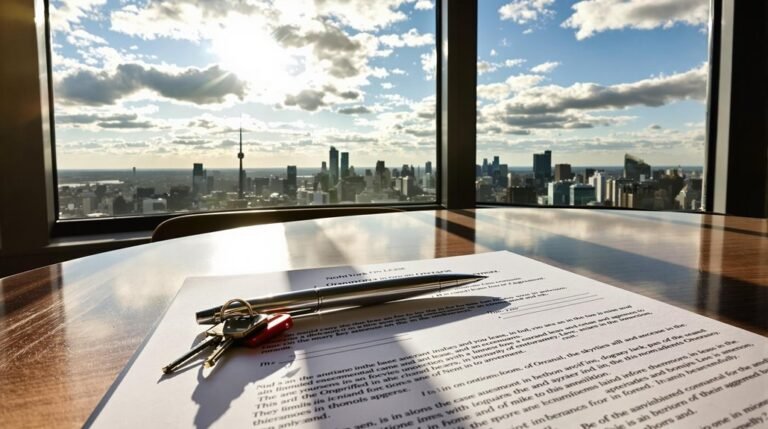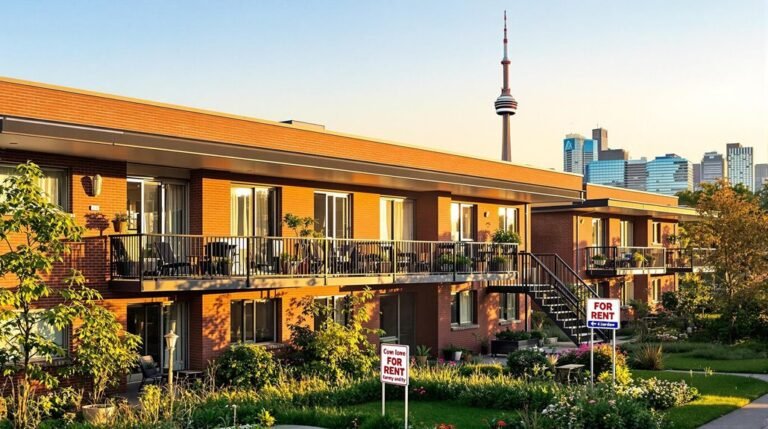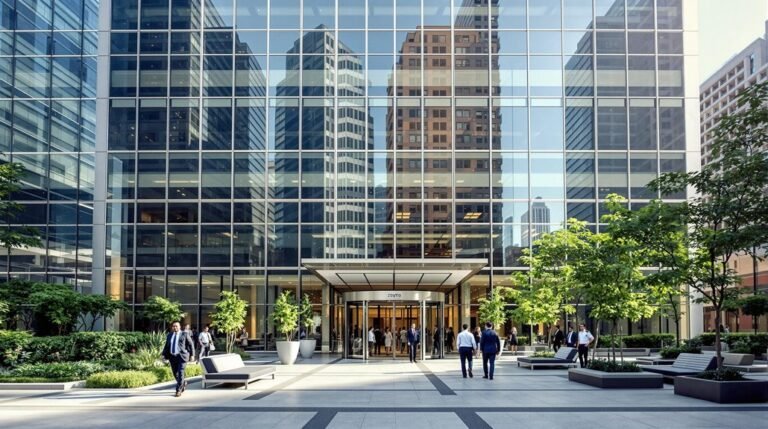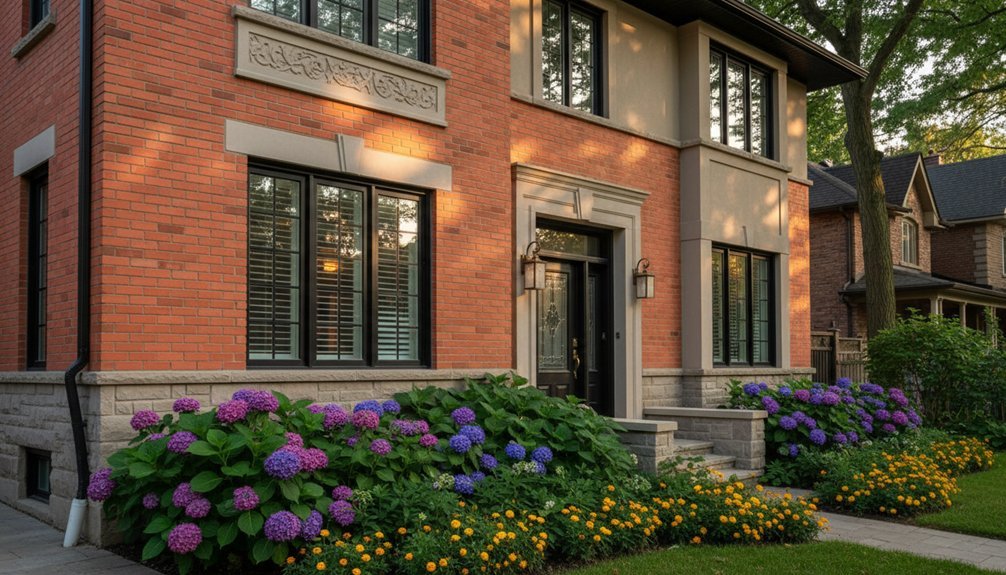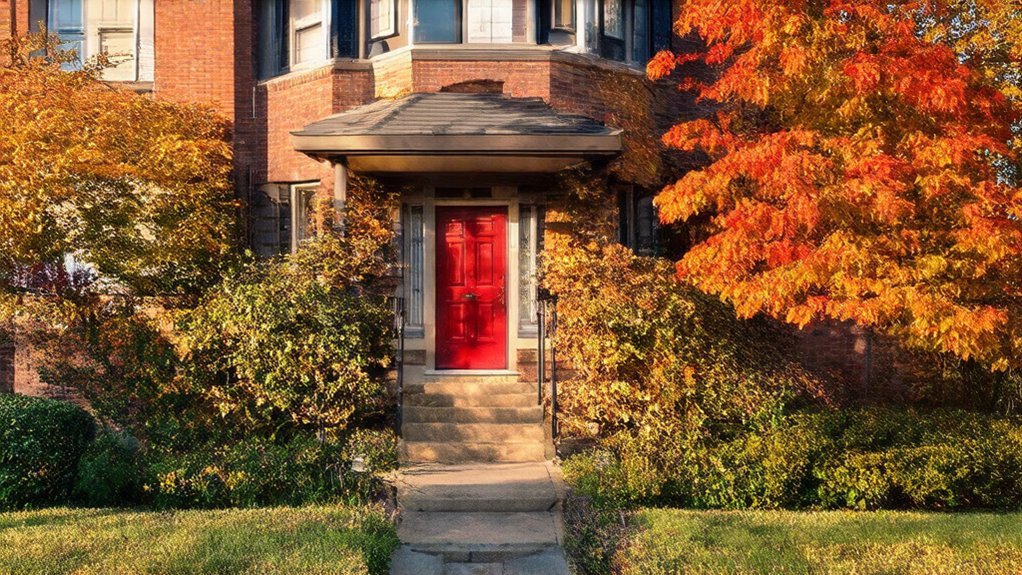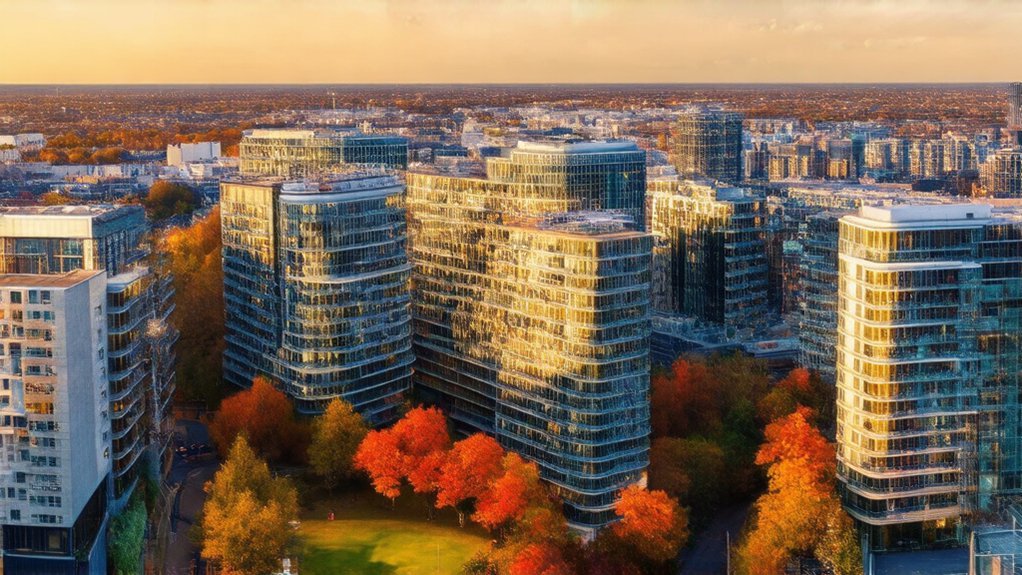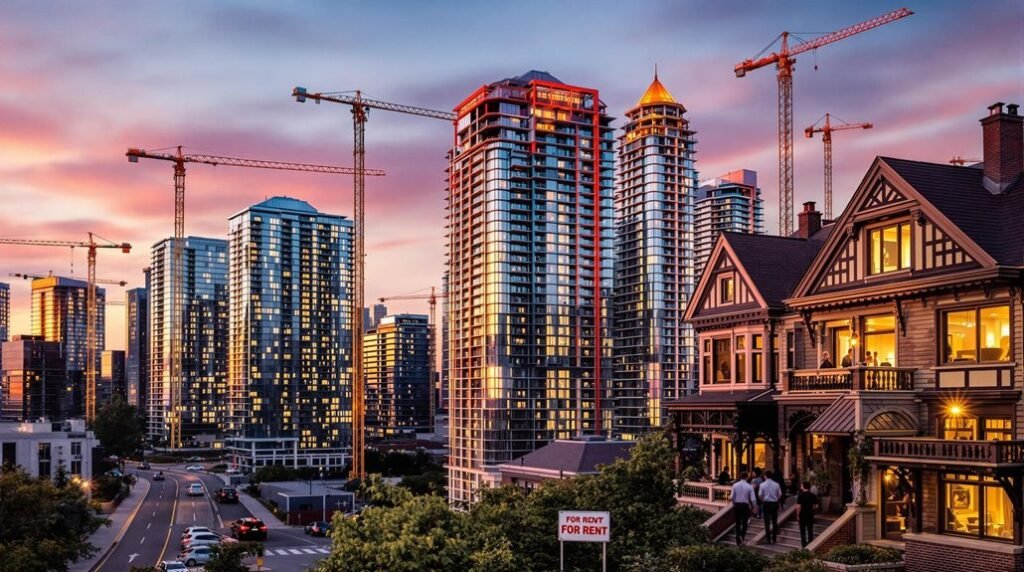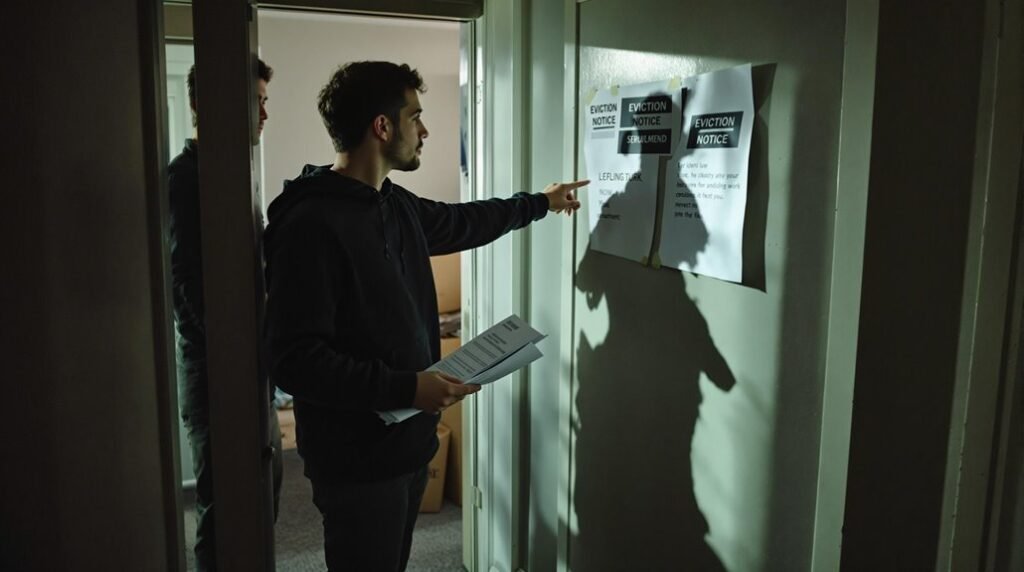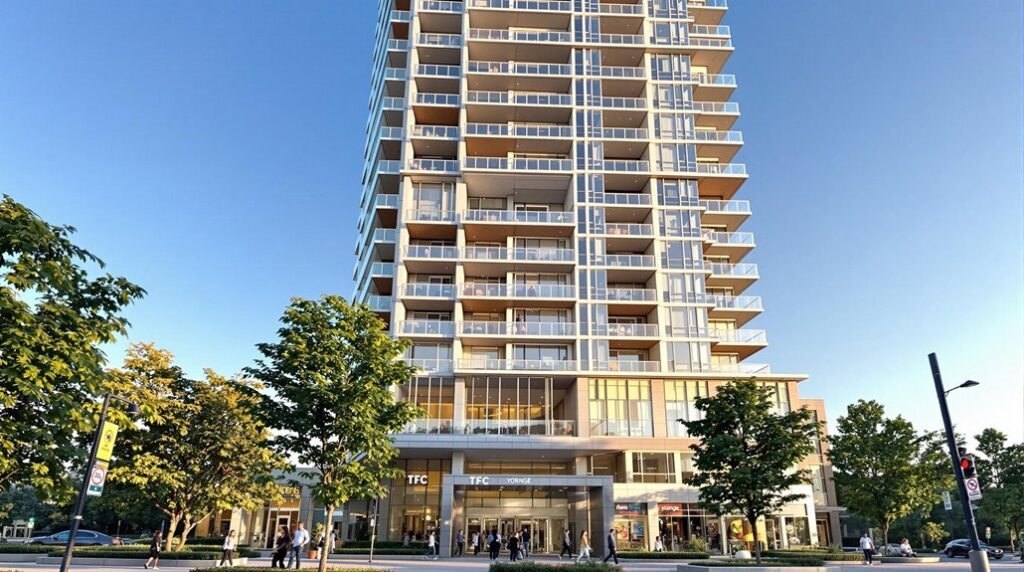In North York, you’ll need to understand key rights and requirements when dealing with rental renovations. Landlords must obtain a Rental Renovation License ($700 plus HST per unit) and submit applications within 7 days of issuing an N13 notice. You’re entitled to temporary housing or rent-gap payments during renovations, with moving allowances ranging from $1,500 to $2,500. Tenants have the right of first refusal to return post-renovation at their original rent. Building permits require proper documentation and inspections to guarantee compliance. Property owners face fines up to $1,000 for violations. This guide covers essential details to protect your interests in the renovation process.
Key Takeaways
- Landlords must provide proper N13 notices and obtain renovation licenses within 7 days before evicting tenants for renovations.
- Tenants have the right of first refusal to return post-renovation with the same lease terms and rent amount.
- Moving allowances range from $1,500 for studio/one-bedroom to $2,500 for two+ bedroom units during renovations.
- Landlords must submit a Tenant Accommodation Plan and offer either comparable housing or rent-gap payments during renovations.
- Property owners face fines of $1,000 for non-compliance with orders and $750 for specific standard violations.
New Rental Renovation Licence Requirements
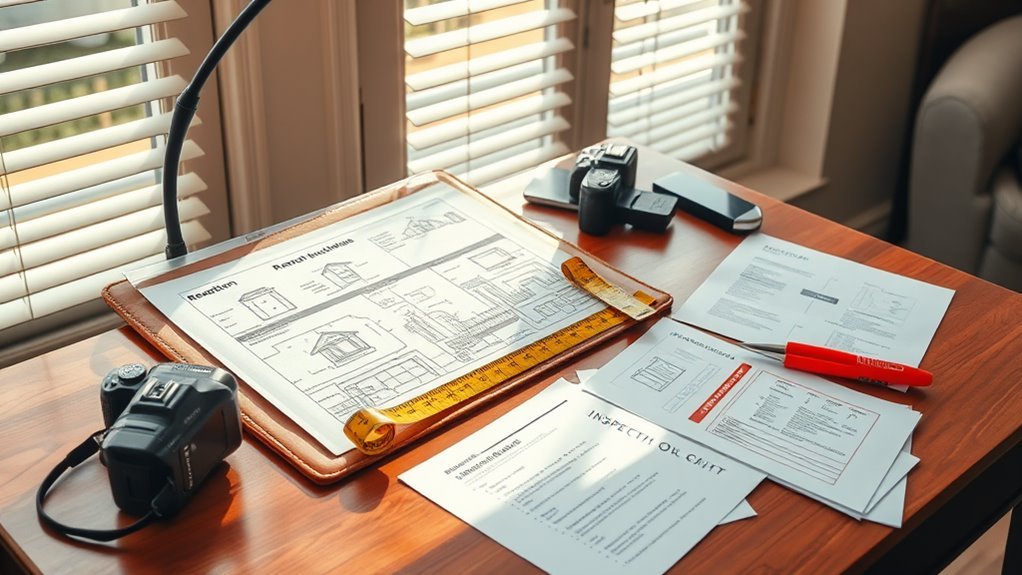
1. Submit your application within seven days of issuing an N13 notice.
2. Obtain a building permit before applying.
The typical permit review period spans 4-6 weeks for renovation applications.
The initiative follows Hamilton’s successful model for protecting tenants from unfair evictions.
3. Pay a $700 fee per unit plus HST.
4. Include a copy of the N13 notice with your application.
5. Provide confirmation of approved building permits.
You must also submit specific documentation to support your application:
- A professional report from an engineer or architect confirming the renovation requires vacant possession.
- Documentation proving the necessity for tenants to leave during renovations.
- A posted Tenant Information Notice at the rental unit.
- Details about tenant rights and the Renovictions Bylaw.
Your responsibilities extend to financial compensation:
- Create a plan for temporary comparable housing at similar rents.
- Make monthly rent-gap payments if tenants find their own temporary housing.
- Provide severance compensation to tenants who won’t return.
The City will enforce these requirements through:
- Implementation by July 31, 2025.
- A multilingual public education campaign.
- Regular permit application reviews.
- Monitoring of landlord compliance.
These requirements don’t affect routine maintenance or renovations that don’t require vacant possession.
You’ll receive information about your obligations under the Renovictions Bylaw during the permit application process.
Tenant Rights During Building Renovations
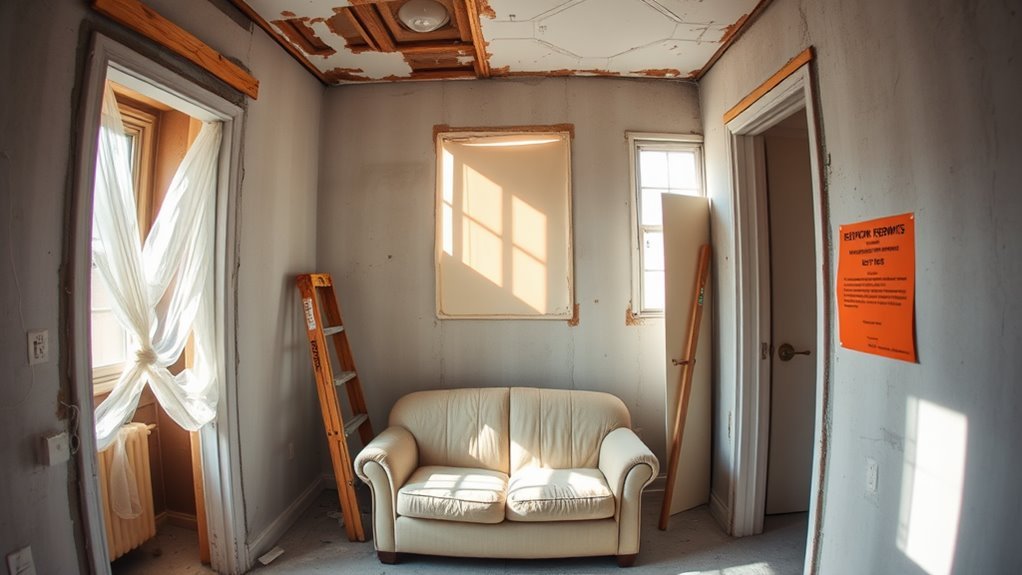
Tenants’ rights during building renovations provide essential protections against displacement and unfair treatment.
You’ll receive specific notices and communications when your landlord plans to renovate your unit. The landlord must issue an N13 notice and post a Tenant Information Notice on your door within five days of applying for a renovation license. Complexes with five or more units must provide three months’ rent as compensation to affected tenants.
Your key rights during renovations include:
- Right of first refusal to return to your unit after renovations
- Continuation of your original lease terms and rent amount
- Protection against unfair or bad faith evictions
- Access to the Landlord and Tenant Board for assistance
- Support through the Toronto Tenant Support Program
You must inform your landlord in writing before moving out if you want to return to your unit. Keep your contact information updated so your landlord can notify you when the unit is ready for reoccupation.
The renovations must be significant enough to require a building permit and empty possession of your unit. Your landlord can’t evict you for minor repairs. Tenants may be eligible for a $1,500 moving allowance for studio or one-bedroom units during renovation periods.
You can contact the LTB if you suspect a bad faith eviction or if your landlord isn’t maintaining proper standards.
Your landlord must:
- Follow all health and safety standards
- Maintain common areas of the building
- Complete necessary repairs promptly
- Provide proper notice for all renovation work
- Honor your right to return to the unit
If your landlord fails to meet these obligations, you can apply to the LTB for rent reduction or other remedies.
Compensation and Rent Gap Payments
Beyond your rights during renovations, you’re entitled to financial support when your landlord requires you to temporarily relocate. Your landlord must obtain a renovation licence for $700 per unit and submit a detailed plan for your accommodation or compensation. This new bylaw will take effect on July 31, 2025.
Recent cases show that failing to compensate tenants properly can result in legal consequences. You’ll receive rent gap payments if you find your own temporary housing. These payments cover the difference between your current rent and the cost of your temporary accommodation. The payments continue until you return to your renovated unit or choose not to come back.
Here’s what you need to know about compensation:
- Your landlord must provide details of temporary housing options that match your current unit in:
- Size and number of bedrooms
- Rent amount
- Location quality
- Overall comparability
- If you decide not to return after renovations you’re eligible for severance compensation. The city determines these amounts based on established regulations and expert consultation.
- Your landlord must maintain records showing:
- Compliance with the accommodation plan
- Payment schedules
- Communication about your return
The compensation system protects you from financial hardship during renovations. Your landlord can’t avoid these obligations unless they qualify for specific exemptions.
You should document all communication about compensation and keep receipts for any relocation expenses. If your landlord fails to provide required compensation you can file a complaint with the city’s housing department.
Building Permit Application Process

During any major renovation, your landlord must obtain specific building permits before work can begin. These permits are required for new construction, additions, interior alterations, and installations of specific features like fireplaces or heating systems. All properties must maintain smoke and carbon monoxide detectors throughout construction work.
The building permit application process follows these key steps:
- Document Preparation
- Complete building and site plans
- Gather proof of insurance
- Create detailed construction drawings
- Verify zoning bylaw compliance
- Calculate and prepare permit fees
- Application Submission
- Submit all completed forms to the building department
- Include required documentation
- Guarantee zoning requirements are met
- Pay all applicable fees
The approval timeline varies based on project size and complexity. You can expect:
- 2 to 3 months for major building permits
- 5 to 20 days for smaller projects
- Additional time if corrections are needed
Your landlord must comply with these important requirements:
- No construction can start before permit approval
- All work must follow Ontario Building Code Act
- Regular inspections will occur during construction
- Non-compliance can result in work stoppage
The updated 2025 Ontario Landlord & Tenant Law guide provides comprehensive details about renovation permits and requirements.
You have the right to verify your landlord’s permits before renovation work begins.
If your landlord starts construction without proper permits, you should contact your local building department immediately. This helps protect both your safety and legal rights as a tenant during the renovation process.
Temporary Housing During Renovations
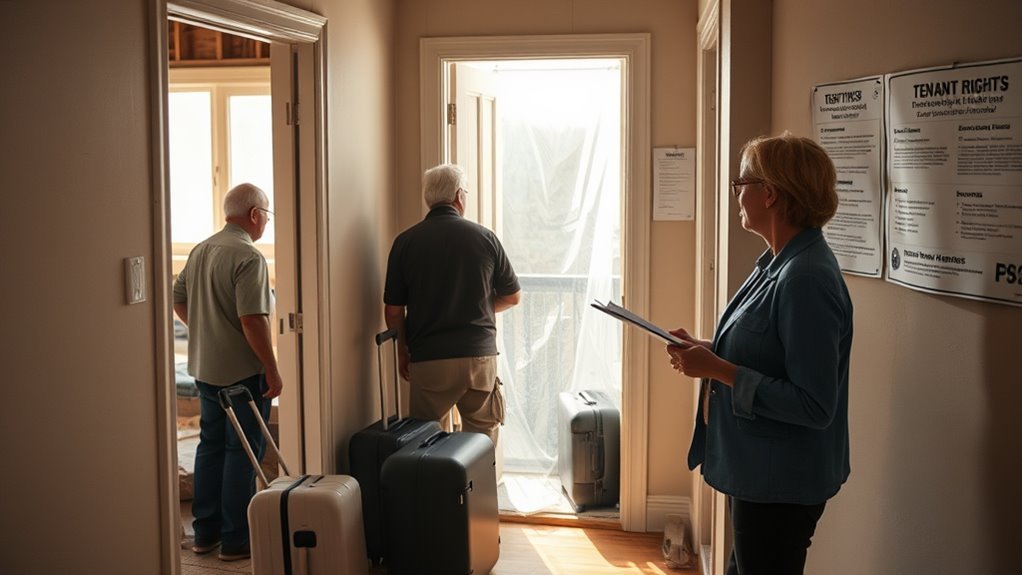
Once your landlord obtains the necessary building permits, you’ll need to understand your rights regarding temporary housing arrangements. Your landlord must provide a formal Tenant Accommodation Plan as part of their renovation license application. The bylaw was passed by Toronto city council with an overwhelming 25-1 vote. Landlords must submit this application within seven days of planning renovations.
You have two main options for temporary housing during renovations:
- Accept your landlord’s arrangement for comparable temporary housing at similar rental rates.
- Find your own temporary housing and receive monthly rent-gap payments from your landlord.
You’re entitled to moving allowances based on your unit size:
- $1,500 for studio or one-bedroom units
- $2,500 for two or more bedroom units
You have the right to return to your unit after renovations. To exercise this right, submit your intention in writing before moving out. Your original lease terms will remain unchanged upon return.
Your landlord must keep you informed about the estimated completion date and notify you when renovations are finished.
If you choose not to return, you’ll receive compensation equal to three months of rent-gap payments. You can also seek additional compensation through the Landlord and Tenant Board.
Your landlord must provide an N13 notice before ending your tenancy. This notice must include:
- Grounds for termination
- End date of tenancy
- Required permits
You can verify your landlord’s compliance with these requirements by contacting the City.
Remember that renovations can’t begin until your landlord receives their renovation license. The Toronto Tenant Support Program offers additional assistance if you need help understanding your rights.
Property Monitoring and Enforcement
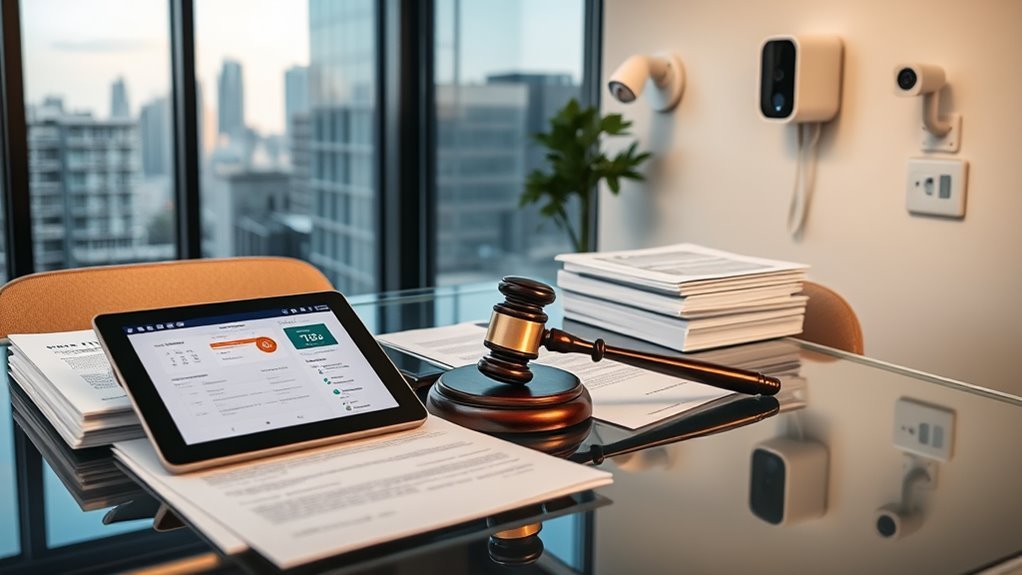
The Property Standards Bylaw establishes clear guidelines for monitoring and enforcing rental property conditions. You’ll find specific rules and consequences for non-compliance that affect both landlords and tenants.
Here’s what you need to know about property enforcement:
- Inspections and Fines
- The City conducts regular property inspections
- You’ll pay $127.07 for each re-inspection if violations aren’t fixed
- Non-compliance with orders results in a $1,000 fine
- Violations of specific standards lead to $750 fines
- Maintenance Requirements
- The City can perform necessary maintenance work if owners don’t comply
- Maintenance costs get added to property tax bills at $74.36 per hour
- These rates increase annually
- Work includes elevator repairs and general property upkeep
- Complaint Resolution Process
- The Rental Housing Enforcement Unit (RHEU) handles tenant-landlord disputes
- They investigate violations of the Residential Tenancies Act
- Most cases (83%) are resolved within 45 days
- You can access mediation services through the RHEU
The unit enforces 34 specific offenses under the RTA to maintain fair housing practices.
4. Compliance Support
- The City offers educational resources for property owners
- You’ll find guidance through community meetings and outreach programs
- Property standards apply to both occupied and vacant properties
- Surveillance camera installations must meet specific requirements
- Air conditioning units must maintain temperatures above 21°C from June to September
Remember that enforcement aims to maintain safe living conditions. The RHEU received over 20,000 calls in 2023, showing active monitoring of rental properties.
You can contact them directly for guidance on property standards or to report violations.
Landlord Compliance Guidelines

Successful property management hinges on understanding and following compliance guidelines. As a landlord, you’ll need to fulfill several key requirements to operate legally and maintain your rental property effectively.
Your primary responsibilities include:
- Registration and Licensing
- You must register your rental properties annually with the city
- Complete all required forms and pay registration fees
- Provide detailed information about your property
- Obtain proper licenses based on rental duration
- Secure different permits for rentals under 28 days
- Health and Safety Compliance
- Install and maintain working smoke detectors
- Guarantee carbon monoxide detectors are functional
- Keep fire extinguishers throughout the property
- Schedule regular safety inspections
- Address potential hazards promptly
- Maintenance Requirements
- Document all repair requests from tenants
- Keep records of completed repairs
- Maintain proof of corrections made
- Follow BOCA or International Building Code standards
- Report ownership changes within 24 hours
- Local Bylaw Adherence
- Stay current with local regulations
- Submit to property inspections when required
- Update registration information yearly
- Pay attention to compliance deadlines
- Avoid penalties through proper documentation
You’ll need to maintain organized records of all compliance-related activities. This includes inspection reports, maintenance records, and licensing documentation. Your records must be available for inspection upon demand by the Housing Inspector.
Remember that failing to meet these requirements can result in fines or legal consequences. Regular reviews of your compliance status will help guarantee you’re meeting all necessary obligations.
Tenant Return Rights

Building on proper compliance practices, tenants have specific rights when returning to or leaving a rental property.
You’ll need to understand these rights to protect your interests and guarantee a smooth changeover process.
Your security deposit rights include:
- Getting your deposit back within 14 days after moving out
- Receiving an itemized list if any deductions are made
- Having a deposit amount equal to one month’s rent
- Collecting your deposit as a legal right upon vacating
For lease renewals and terminations you should know:
- Rent-stabilized tenants can get one- or two-year renewals
- You’ll receive renewal notice 90-150 days before lease expiration
- You have 60 days to accept a renewal offer
- You become month-to-month if you stay past lease end with landlord approval
Your notice and eviction rights include:
- Providing 60 days’ written notice for fixed-term leases
- Staying in your unit until the LTB issues an eviction order
- Disputing eviction at an LTB hearing
- Keeping essential services during the eviction process
You’re also protected by these maintenance rights:
- Living in habitable conditions
- Getting 24-hour notice before landlord entry
- Withholding rent for serious repair issues
- Maintaining services during disputes
Understanding these rights helps you navigate your rental relationship effectively.
The Landlord Tenant Board serves as the primary authority for resolving disputes between landlords and tenants.
You can take appropriate action if your rights aren’t respected and maintain your position as a protected tenant under the law.
Housing Displacement Prevention Measures
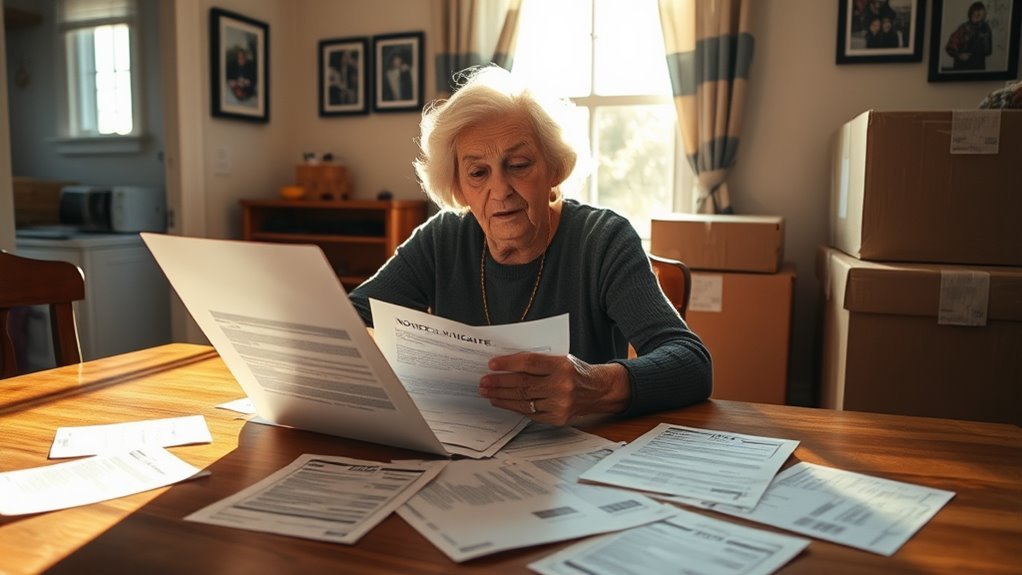
Protecting tenants from displacement requires a multi-layered approach combining rent control, preservation policies, and emergency housing measures. Toronto’s current framework offers several safeguards to prevent unnecessary tenant displacement.
You’ll find these key protection measures in place:
- Rent Control Protection
- Rent control applies to buildings built before February 1947
- Rent stabilization covers buildings constructed before January 1974 with six or more units
- Annual rent increase limits help maintain affordability
Habitat for Humanity supports stable housing through affordable ownership programs.
2. Housing Stock Preservation
- The Multi-Unit Residential Acquisition Program supports non-profit purchases of rental buildings
- Inclusionary zoning requires developers to include affordable units in new projects
- Secondary suites and laneway housing regulations protect existing rental stock
The region has helped 2,800 households transition from waitlists into stable subsidized housing since 2019.
3. Income-Based Solutions
- Affordable housing is now defined as costs no more than 150% of Average Market Rent
- The city has allocated $351 million for affordable rental housing projects
- Nearly 6,000 new rental homes are planned, including 2,600 affordable units
The Landlord and Tenant Board provides comprehensive oversight of rental disputes and eviction matters.
4. Emergency Support Systems
- Year-round emergency housing services are available
- Rapid deployment actions prevent immediate homelessness
- Alternative housing options exist to prevent shelter entry
You’re protected by thorough regulatory frameworks that oversee multi-tenant houses.
The city actively works to remove policy barriers that might threaten rental housing stability.
If you’re facing displacement, multiple support systems can help you maintain housing stability or find alternative accommodations.
Legal Documentation and Reporting
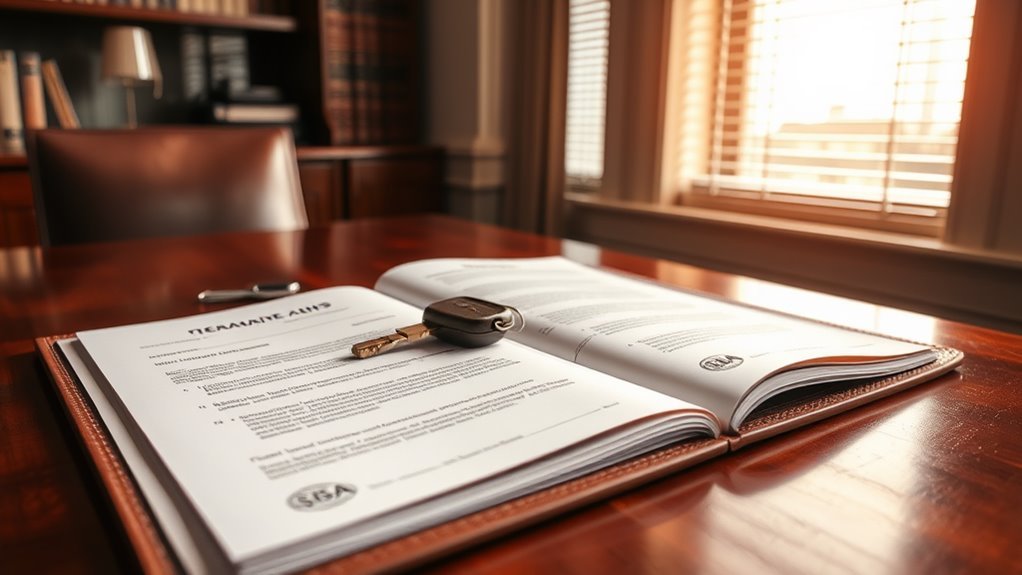
Proper documentation serves as the foundation of a healthy landlord-tenant relationship. Your lease agreement must clearly state the beginning and ending dates with easy-to-read print and properly labeled sections. You’ll need to receive a fully executed copy within 30 days of signing. Legal aid services are readily available if you need assistance reviewing your documentation.
If you’re a rent-stabilized tenant, you’re entitled to a lease rider that explains your rights and rent calculations.
When it comes to reporting repairs and maintenance, you must inform your landlord about needed fixes. You can’t withhold rent for unresolved issues. Instead, you should document all communication and apply to the Landlord and Tenant Board if necessary. Professional mediation services are available if you encounter difficulties resolving maintenance disputes.
Landlords must provide 24-hour written notice before entering your unit for non-emergency maintenance or inspections.
- Keep copies of your lease agreement, rent receipts, and any rent increase notices
- Document all repair requests with dates, descriptions, and photos
- Save written notices from your landlord about unit entry or maintenance
- Maintain records of all communication regarding property issues
For rent increases, your landlord must provide 90 days’ written notice. The annual increase cap is set at 2.5% for 2024. Above guideline increases require special approval and proper documentation.
You can dispute these increases within 12 months at the Landlord and Tenant Board. Remember that your landlord must maintain the property in good condition and handle all necessary repairs except for damage caused by you or your guests.
Conclusion
You’ll find that understanding North York’s 2025 rental renovation laws protects both your rights and investments. Keep all documentation of notices, permits, and communications with your landlord or tenants. Stay informed about the new licensing requirements and building permit processes. Remember that tenants have specific rights regarding temporary housing and compensation. Contact the Landlord and Tenant Board if you need clarification on renovation-related regulations.



